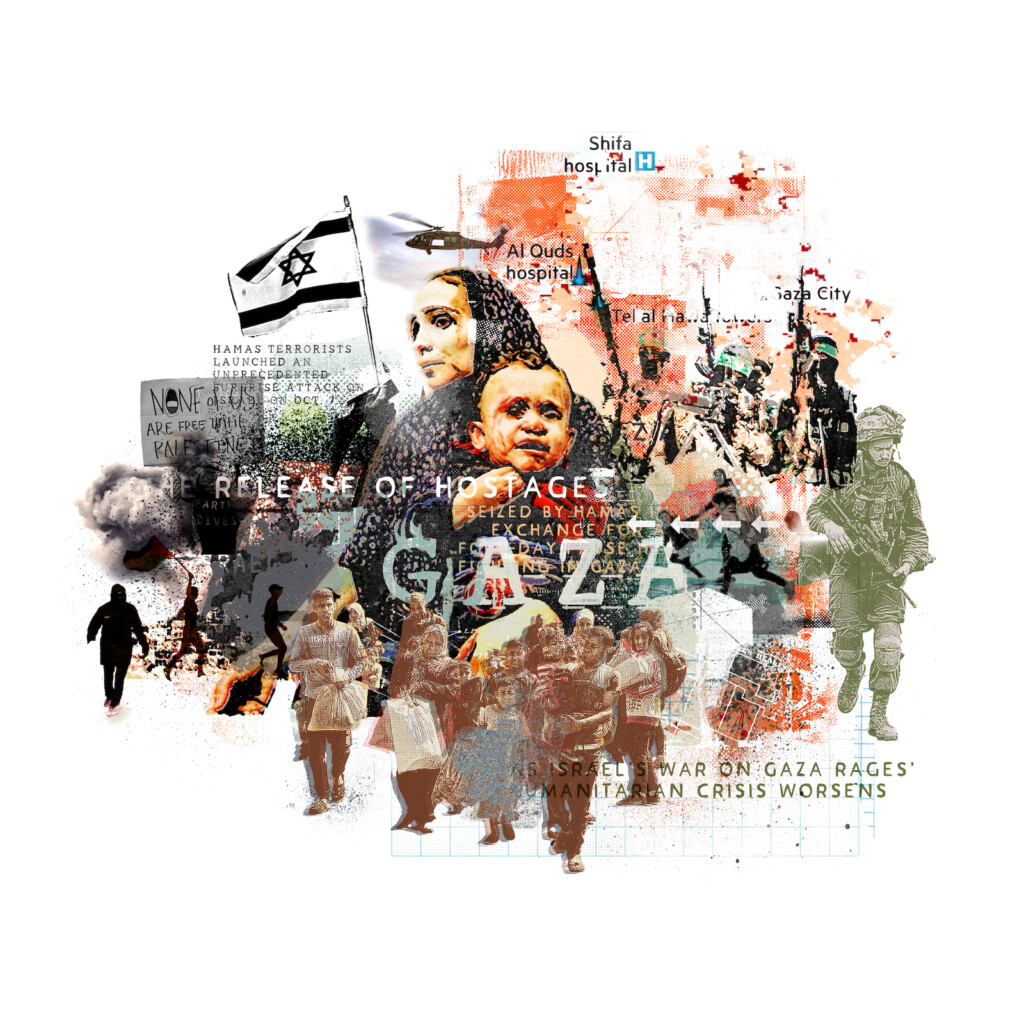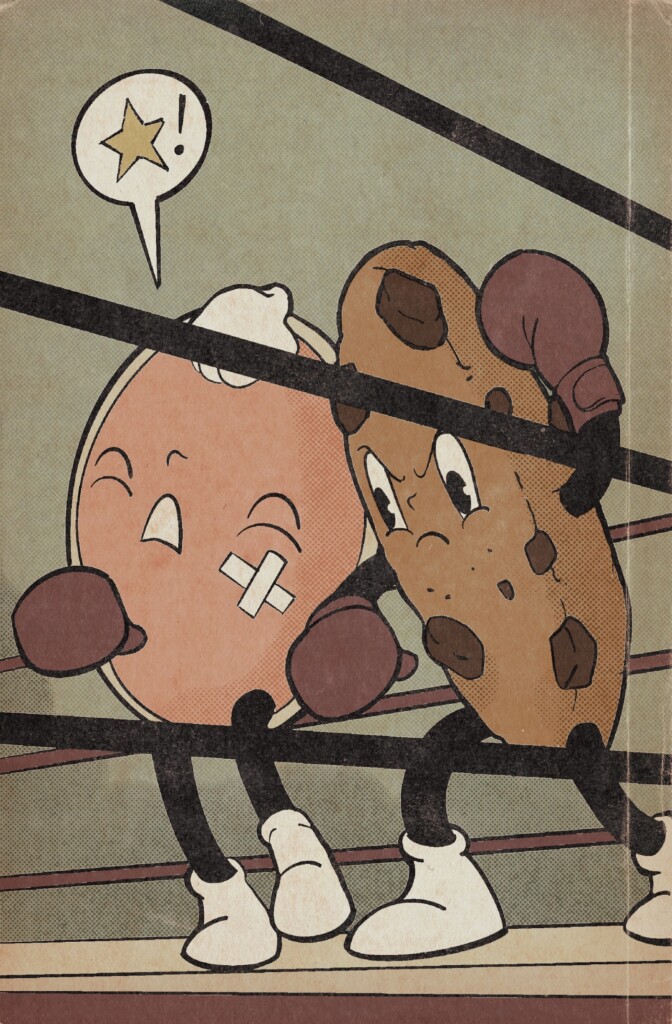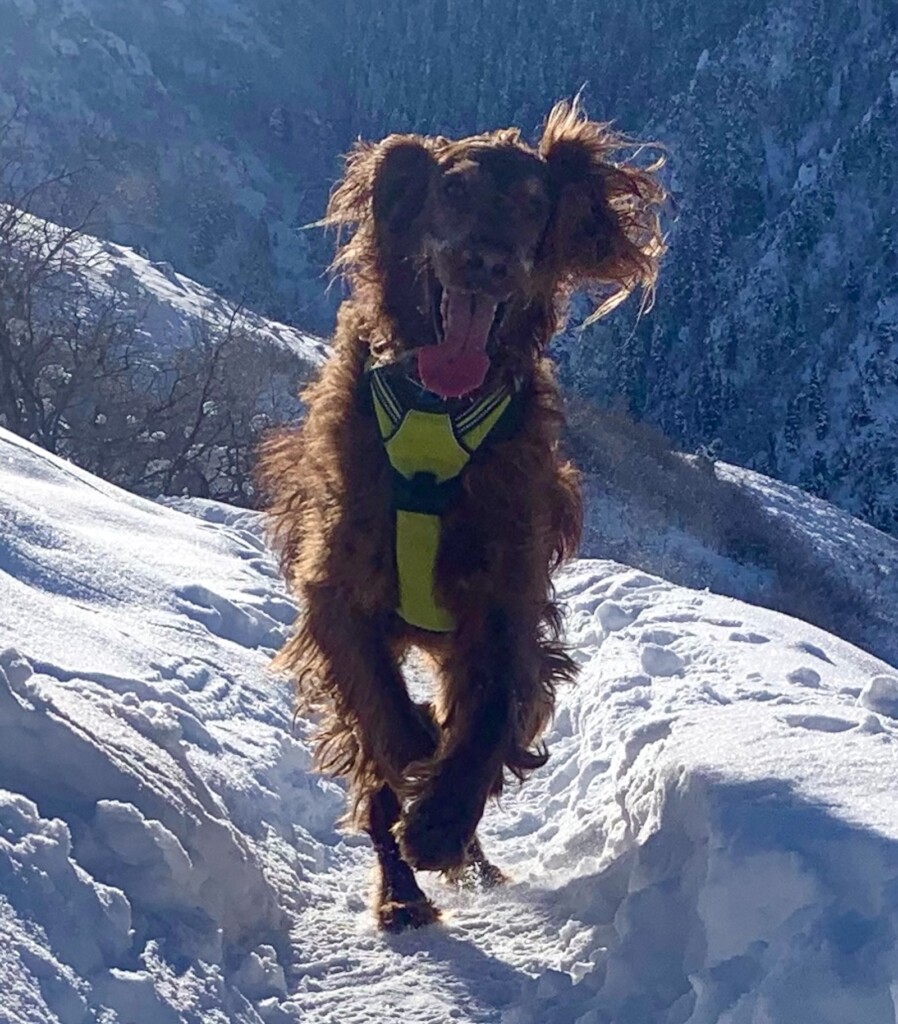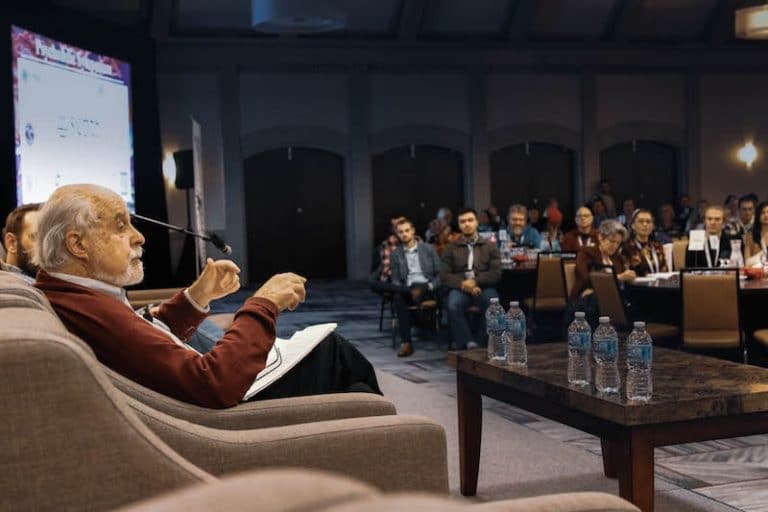
As research and main-stream acceptance of psychedelics has spread across the United States, the movement officially arrived in Utah.
An organization called Salt City Psychedelic Therapy and Research (SCPTR) was hosted and organized by Doctors Parth Gandhi and Dr. Reid Robison. Utah Psychedelic Symposium Shares the benefits of a mostly Illegal class of drugs to make a positive difference treating Utahns for Depression/Anxiety and PTSD.
“Just two days ago,” said Dr. Parth Gandhi, “The FDA agreed to allow for expanded access to MDMA to treat PTSD!”
Mushrooms, ayahuasca, LSD, Ketamine, and their proponents arrived in Utah to an enthusiastic sold-out crowd at the Sheraton Hotel in downtown Salt Lake City, which erupted with applause.

The crowd of psychedelic enthusiasts were in rapt attention as some of the top names in psychedelic research began sharing their journey. Together, these mavericks have been conducting research on substances that have been mostly banned in the United States since the early sixties. Their day has arrived. Today, psychedelics are gaining wide-spread attention. With references to 60-Minutes, and Joe Rogan and Tim Ferriss, it seems similar to the “green wave” of legal cannabis, and many states are changing their laws and opening up research avenues for legalizing more forms of psychedelics.
The increasingly widespread acceptance of psychedelics was evident from the two doctors from Austin, Texas who were going to speak about Ketamine-assisted psychotherapy. They said that they do not prescribe Ketamine to all of their patients, nor do they discount the effectiveness of antidepressants and SSRIs to treat anxiety and depression. They only prescribe Ketamine if nothing else has worked. But they agreed with many of the speakers that the effectiveness of Ketamine treatments is far superior than the results found from traditional SSRIs (the class of drugs that inhibit serotonin reuptake, such as Paxil and Wellbutrin), which major pharmaceutical companies have touted for over two decades.
Dr. Phil Wolfson said that psychedelics, of which currently only Ketamine treatments are legal, should be expanded to include mushrooms (psilocybin), LSD, MDMA. and ayahuasca. Dr. Wolfson explained that while psychedelics operate on the same receptors that take serotonin, the major difference is that the receptors grab onto psychedelics for hours at a time. “It’s like our brains know to hold onto these molecules because they know psychedelic trips are good for us,” he said, which is why these drugs were used by ancient cultures in religious ceremonies for thousands of years.
The keynote speaker was Dr. James Fadiman, PhD. Fadiman spoke about the benefits of how hour-long trips on LSD, DMT and mushrooms have helped thousands of patients overcome their depression, anxiety and other emotional roadblocks due to major life changes. He added,” Life is always changing, but handling traumatic changes that occur can leave permanent scars. These substances help people to work through their pain and trauma.”
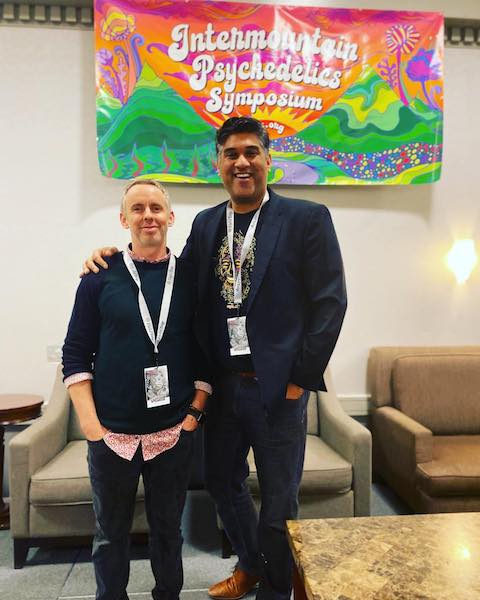
Organizers Dr. Robison and Dr. Gandhi met each other several years ago and found they had in common their shared interest in the promising field of psychedelics to treat patients for a variety of ailments when traditional medicines have failed.
Dr. Robison likens our minds to a mountain with snow. After a field of powder is skied out, our thoughts tend to get into ruts of negative and unproductive grooves. Some people are not able to think in a new way, and the negativity results in anxiety and depression, or worse. “Mystical experiences and positive emotional breakthroughs create meaningful changes in one’s life,” Robison said. Psychedelics facilitate these breakthroughs.
Dr. Gandhi described the movement as “using ancient technology to wake up.” He quotes renowned mushroom expert Paul Stamets, who said, “The mycelium is the earth speaking to us.”
Dr. Gandhi concluded by saying he believes that in ten years it will be considered unethical to treat anyone suffering from depression, anxiety or PTSD in any other way than by using psychedelics. Gandhi said they raised over $90,000 at the event for future research.



